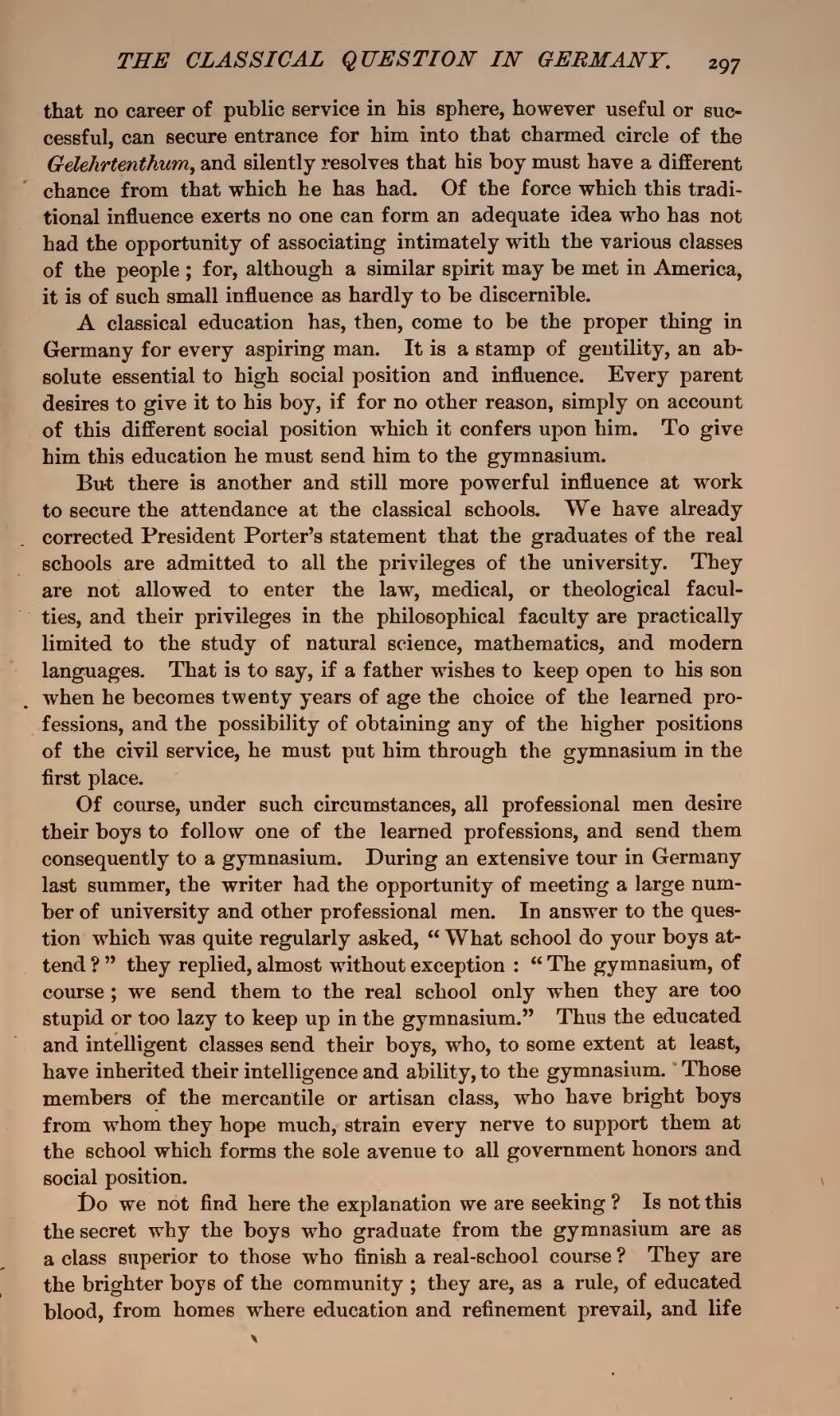that no career of public service in his sphere, however useful or successful, can secure entrance for him into that charmed circle of the Gelehrtenthum, and silently resolves that his boy must have a different chance from that which he has had. Of the force which this traditional influence exerts no one can form an adequate idea who has not had the opportunity of associating intimately with the various classes of the people; for, although a similar spirit may be met in America, it is of such small influence as hardly to be discernible.
A classical education has, then, come to be the proper thing in Germany for every aspiring man. It is a stamp of gentility, an absolute essential to high social position and influence. Every parent desires to give it to his boy, if for no other reason, simply on account of this different social position which it confers upon him. To give him this education he must send him to the gymnasium.
But there is another and still more powerful influence at work to secure the attendance at the classical schools. We have already corrected President Porter's statement that the graduates of the real schools are admitted to all the privileges of the university. They are not allowed to enter the law, medical, or theological faculties, and their privileges in the philosophical faculty are practically limited to the study of natural science, mathematics, and modern languages. That is to say, if a father wishes to keep open to his son when he becomes twenty years of age the choice of the learned professions, and the possibility of obtaining any of the higher positions of the civil service, he must put him through the gymnasium in the first place.
Of course, under such circumstances, all professional men desire their boys to follow one of the learned professions, and send them consequently to a gymnasium. During an extensive tour in Germany last summer, the writer had the opportunity of meeting a large number of university and other professional men. In answer to the question which was quite regularly asked, "What school do your boys attend?" they replied, almost without exception: "The gymnasium, of course; we send them to the real school only when they are too stupid or too lazy to keep up in the gymnasium." Thus the educated and intelligent classes send their boys, who, to some extent at least, have inherited their intelligence and ability, to the gymnasium. Those members of the mercantile or artisan class, who have bright boys from whom they hope much, strain every nerve to support them at the school which forms the sole avenue to all government honors and social position.
Do we not find here the explanation we are seeking? Is not this the secret why the boys who graduate from the gymnasium are as a class superior to those who finish a real-school course? They are the brighter boys of the community; they are, as a rule, of educated blood, from homes where education and refinement prevail, and life
